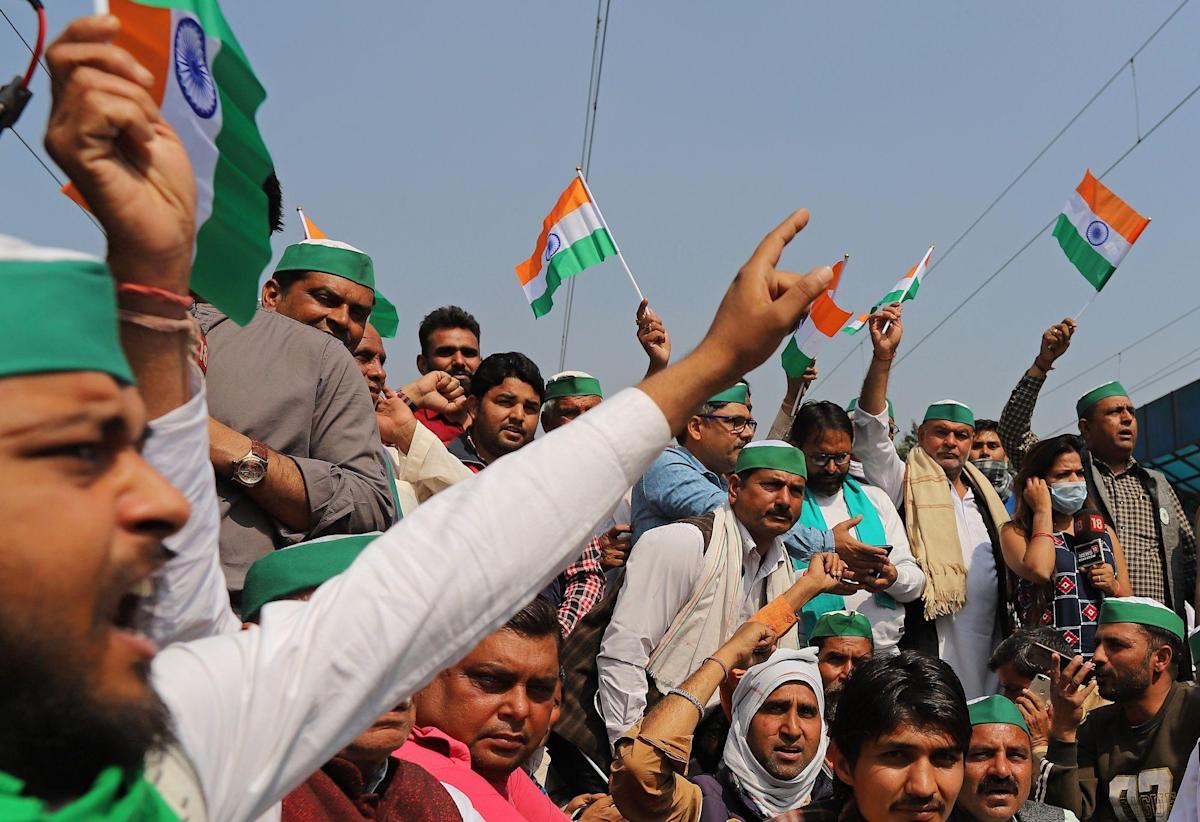
Govt to scrap agricultural laws, but farm protests to continue
Tens of thousands of farmers are still campaigning in various states against legislation they say will jeopardise their livelihoods
In a surprise speech to the nation on Friday morning, Prime Minister Narendra Modi said his government would scrap three agricultural laws that touched off one of the most politically challenging spells of protest by farmers in decades.
“Today I have come to tell you, the whole country, that we have decided to withdraw all three agricultural laws,” Modi said addressing the nation on the birth anniversary of Sikhism’s founder Guru Nanak. “I urge farmers to return home to their families and let’s start afresh.” In the nationally televised address, Modi added: “In the Parliament session starting later this month, we will complete the constitutional process to repeal these three agricultural laws.”
Farmers were opposed to the laws from the word go. Tens of thousands of them are still campaigning in various states against legislation they say will jeopardise their livelihoods.
The decision to withdraw the laws comes ahead of crucial state elections in Uttar Pradesh, the country’s most populous political bellwether state, and Punjab, where farmers are an influential voting bloc.
Reacting to the announcement, Rakesh Tikait, a prominent farm leader from Uttar Pradesh, said: “We are not withdrawing the protests. We will wait and watch to see what happens. Also, we want a law on MSP (minimum support prices).”
Farm-union leaders said the agitation to demand a legal guarantee for support prices would continue. “It is the victory of millions of farmers who did not give up. It is a victory for democracy but a partial victory. We had two demands, one (was to) repeal the three laws. Second, give us a legal guarantee of minimum support price, something the prime minister had himself demanded when he was chief minister of Gujarat. That has not been considered yet. That struggle will go on,” said Yogendra Yadav, another key leader of the farmers’ movement.
Modi said the laws, enacted in September 2020, would have brought long-term benefits and opened up more markets for farmers to sell their produce, but his government could not convince a section of farmers.
The Samyukt Kisan Morcha, a platform of farm unions protesting the laws, is preparing to summon its decision-making team, Gurnam Singh Charuni, a farm leader from Haryana, said.
“We have several mahapanchyats (farmers’ rallies) in Uttar Pradesh and Haryana. As of now, we will go ahead and plan them,” Charuni said.
The agitation against the three laws to liberalise agricultural trade widened into a full-scale campaign against the ruling Bharatiya Janata Party (BJP) by influential farm unions from food-bowl states such as Punjab, Haryana, Uttar Pradesh, Rajasthan, and Maharashtra.
Farmers were deeply sceptical of the laws they said will leave them at the mercy of big corporations, who could dictate prices and wean them off a system of state support prices.
Farm unions, largely from Punjab, Haryana, and Uttar Pradesh, have been holding year-long sit-ins at four sites near Delhi’s borders.
The government has argued the changes will not alter an existing state-backed system of regulated markets which give farmers assured prices, but would free up farm trade, boost investments in the farm economy and raise incomes.
The laws aimed to ease restrictions on trade in farm produce by setting up free markets, allowing food traders to stockpile large stocks of food for future sales, and lay down a national framework for contract farming based on a written agreement.
As the agitation gained steam, farm leaders began to increasingly target the Modi government’s economic agenda and labeled recent moves to divest state-run companies as a “sell-off”.
On October 2, the protests entered a decisive phase in Uttar Pradesh when a convoy of vehicles, including one belonging to Union minister of state for home Ajay Mishra, ploughed through protesters, killing four farmers. Four others were killed in the violence that followed. The minister’s son has been arrested in the case.
“Farmers sustained their agitation and this created a certain narrative and awareness across the country that injustice was being done. Since it was an autonomous movement, no political party could take credit for it. This created a space for the government to announce withdrawing the laws,” said KK Kailash, a professor of politics at the University of Hyderabad.

